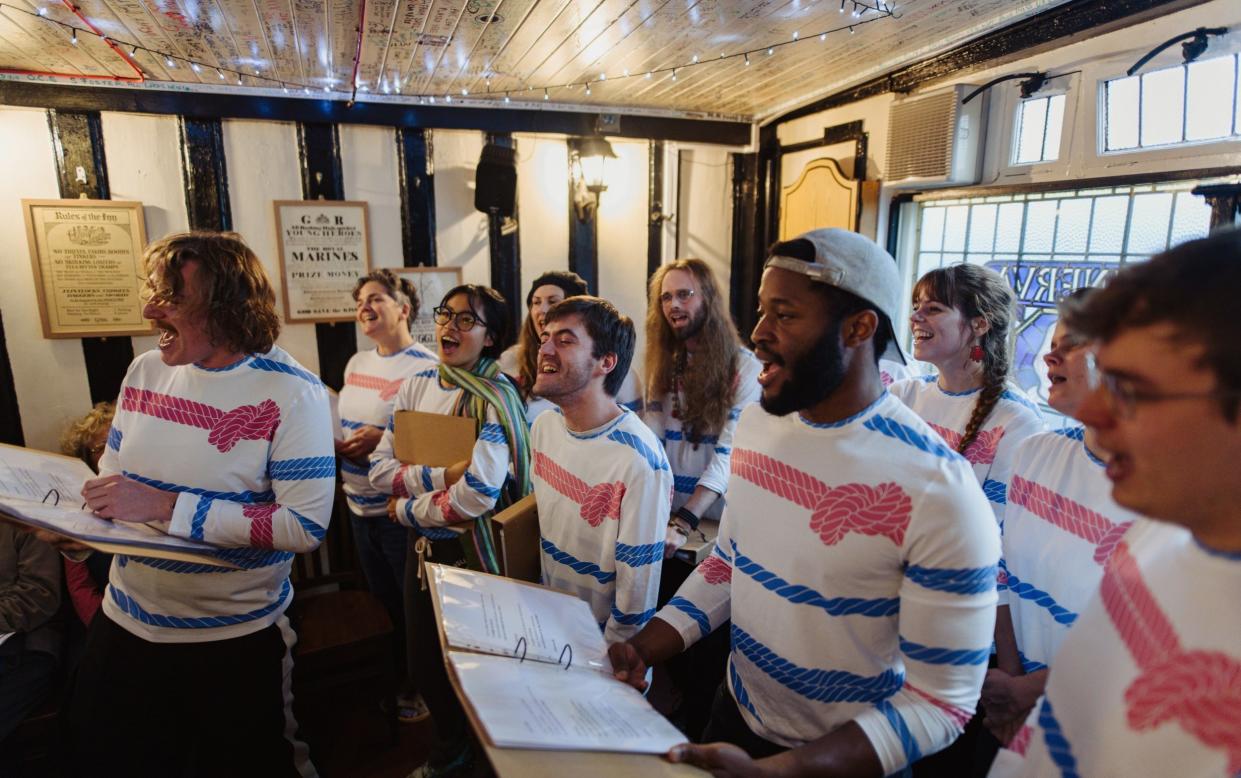LGBT sea shanty choir to perform at dedicated festival for first time

A sea shanty choir made of LGBT+ members will perform at a festival dedicated to the folk tradition for the first time this year.
The Seaweed in the Fruit Locker group, a 15-strong choir, will perform at the Falmouth International Sea Shanty Festival later this month and will be among 80 groups singing at venues around the Cornish port.
Sea shanties date from the late medieval period and were sung by sailing crews as they laboured on ships to ensure they worked together in the same rhythm. An enduring folk tradition, shanties gained mainstream popularity in 2021 after Scottish postman Nathan Evans went viral on TikTok with his own shanty rendition, sparking the “ShantyTok” craze.
The festival, which has been going since 2004, aims to celebrate the history and culture of maritime song and open up the tradition to wider audiences. Among this year’s acts are Fisherman’s Friends, who are signed to Universal and have been producing albums since 2000, and Femmes de la Mer, a group from Cornwall who give the traditional songs a feminist twist by telling stories of local women.
Organisers said that since entering popular culture the shanty scene has been dominated by a largely male demographic, but in recent years they have seen a rise in the number of female-only shanty groups and more children being taught the traditional songs from a young age.
The new LGBT choir was pulled together in October last year after Plymouth artist Rhys Morgan put a call out. He said that while he had always felt drawn to seafaring songs growing up, he had also felt excluded by them. Now the group will perform new songs written by its members and re-worked traditional shanties to reflect their life experiences and explore “queer motifs” within seafaring history.
“The sea doesn’t really have an identity in the same way as a geographical location, which makes it fertile ground for marginalised communities,” Morgan said. “To take a traditional mechanism of sea shanty and bring something new to that folk tradition is an interesting challenge and maybe a bit overdue.”
The group have used slang known as Polari, which was used between gay men when homosexuality was illegal in England and Wales, in both their name and their lyrics. “Seaweed” refers to a sexually available gay sailor, while “fruit locker” referred to a cabin on a ship housing gay shipmates.
Reflecting queer history
Morgan told The Telegraph the group has three or four sea shanties that have been reworked to reflect queer history.
“We have a shanty now called Lion’s Den, taken from the traditional sea shanty Rio Grande, reworking it as it were, that focuses on a location here in Plymouth,” he said. The song references a “semi circular structure formerly a changing area for bathing”, which he said was largely known as a “cruising site” for gay men in the latter half of the 20th century.
“I used the kind of defunct queer language of Polari which obviously was used by queer people in the 20th century as a coded language, as a way of communicating when they weren’t able to be out in the open but has a history going back to the 17th century with different nomadic groups like sailors and gypsies,” Morgan said. “We used polari to imagine what might happen in that place as a cruising site.”
He said the shanties were also about Plymouth’s maritime importance and how it had a history of transient communities passing through, as well as its “queer experience”.

 Yahoo News
Yahoo News 
